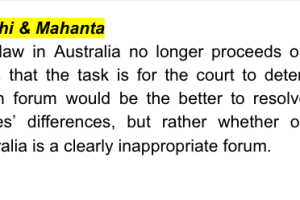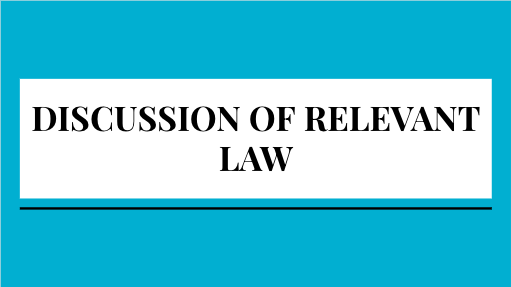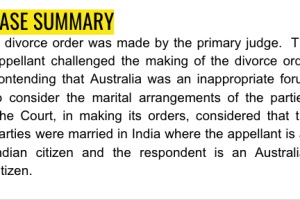- · 4853 friends
Parties Dispute Divorce Order

Pathak & Hardikar [2022] FedCFamC1A 163 (11 October 2022)

A divorce order was made by the primary judge. The appellant challenged the making of the divorce order contending that Australia was an inappropriate forum to consider the marital arrangements of the parties. The Court, in making its orders, considered that the parties were married in India where the appellant is an Indian citizen and the respondent is an Australian citizen.

Facts
On 5 April 2022, a judge of the Federal Circuit and Family Court of Australia (Division 2) made a divorce order in proceedings between Ms Pathak (“the appellant”) and Mr Hardikar (“the respondent”) over the objection of the appellant, who challenged the making of the order on a number of basis, but principally because Australia was an inappropriate forum to consider the marital arrangements of the parties. The parties were married in India in May 2018 pursuant to the Hindu Marriage Act 1955 (India) (“the Hindu Marriage Act”). A few days after the ceremony, the respondent returned to Australia. He then travelled to India for a wedding celebration which occurred on 29 January 2019. After a short honeymoon, the parties lived in Australia from 12 February 2019 to 14 September 2019.
During this time the parties’ relationship deteriorated rapidly. The appellant returned to India in September 2019 and has never returned to Australia. On 3 May 2021, the respondent filed an application for divorce. Although the appellant disputed that service of the application had not properly been effected on her, she filed a Response to that application on 10 September 2021, filed affidavits in support and appeared at the hearing.
His Honour found that on 29 July 2021, the appellant made a complaint to the Indian police alleging a number of contraventions of the Indian Penal Code 1860 (India), by the respondent. The appellant’s evidence was that she made the complaint to the police on 25 July 2021 and the police charged the respondent on 29 July 2021. The significance of this is that the appellant asserts, contrary to the finding of the primary judge, that she was the first to commence proceedings between the parties, and did so by making the complaint on 25 July 2021.
The first error asserted by the appellant was that the above questions did not arise because Australian courts do not have jurisdiction to grant a divorce, asserting that because the marriage was solomised and registered in India, it is governed by Indian law and the proceedings are governed only by the Hindu Marriage Act. The appellant then submitted that the Indian forum was the more appropriate forum in which to conduct the litigation and that the primary judge erred by failing to “undertake a comparative evaluation of the merits and demerits of litigation in the local and foreign forums”.

Issue
Whether or not the proceedings in Australia were or were not in a clearly inappropriate forum.

Applicable law
Family Law Act 1975 (Cth) s 39 - pursuant to which the Court has jurisdiction to make and enforce a divorce order.

Analysis
The very limited material placed before the primary judge (which was apparently just one page from the text of the statute) was too meagre to provide any assistance to him. His Honour noted the lack of any expert evidence before him, which led to the finding that there was no evidence as to whether or not a court in India would recognise the divorce order if it was to be made in Australia. However, the primary judge did proceed on the basis that the appellant had at least an arguable basis for obtaining a divorce under the Hindu Marriage Act in India.
The respondent is a citizen of Australia ordinarily domiciled in Australia and therefore the Court has jurisdiction to make and enforce a divorce order pursuant to s 39(3) of the Family Law Act 1975 (Cth). His Honour took into account, as part of his overall determination, this matter as something weighing in favour of Australia being found to be a clearly inappropriate forum. The difficulty for the appellant is that his Honour then weighed that against the other considerations and was not satisfied, after having taken all of them into account, that Australia was a clearly inappropriate forum. There was no evidence that the appellant would not be able to maintain these proceedings if the divorce was granted in Australia.
Conclusion
The appeal is dismissed.

















